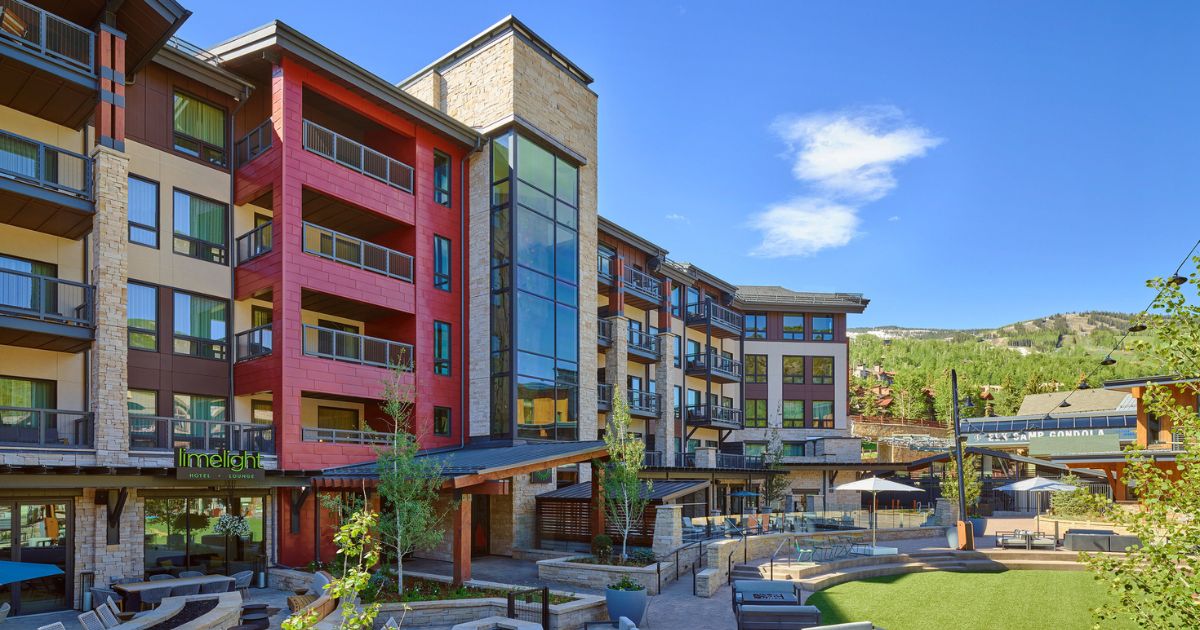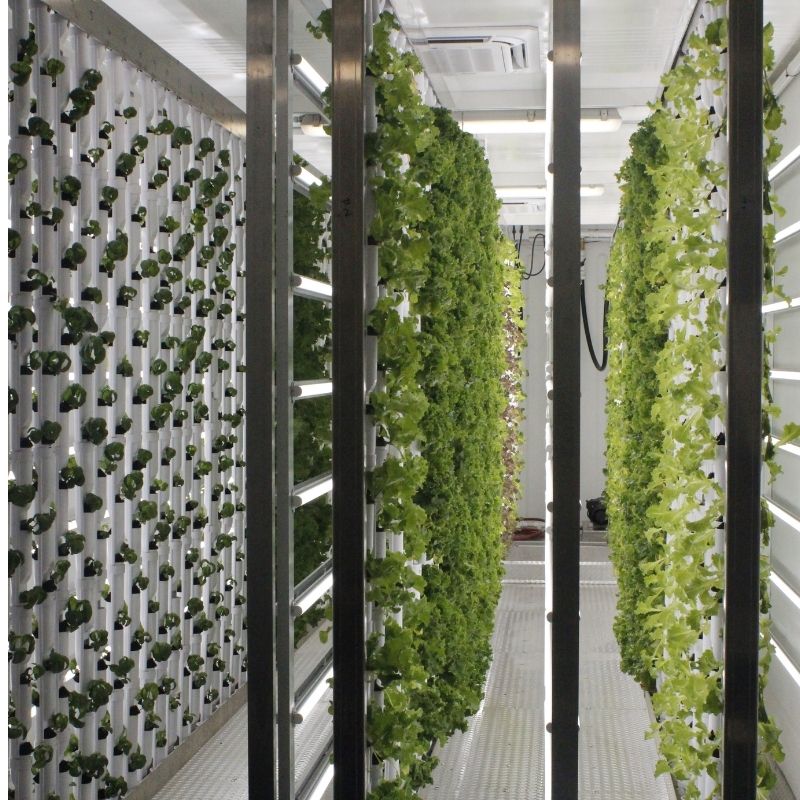Plan your next meeting in
Colorado
Start Researching
Start Planning
Sustainable Hotels and Ski Slopes for Colorado Meetings
By Beth Buehler
Early in my career writing about meetings and events, starting 17 years ago, the conversation about green meetings really got started and ramped up. Then, it became part of the assumed process of planning a meeting. More recently, the more broader conversation of sustainability has hit the spotlight.
In my recent blog about Sustainable Meetings in Colorado, I mentioned that sustainable meetings is the more common terminology today and covers more territory than green meetings. According to an Events Industry Council definition, “Sustainability for events means taking action towards preserving our natural environment; promoting a healthy, inclusive society; and supporting a thriving economy.”
For the purposes of this blog, I’m going to focus on taking care of our environment and being thoughtful regarding resource use and look specifically at sustainable hotels and ski slopes for Colorado meetings.
Sustainability on the Slopes
Aspen Skiing Company (ASC) is the parent of four resorts (Aspen, Snowmass, Buttermilk, and Aspen Highlands) and has pioneered sustainability at ski areas. ASC was the first in the ski industry to set green building guidelines, and the Sundeck restaurant on Aspen Mountain is recognized as one of the first LEED-certified buildings in the world. In Snowmass, the Golf Clubhouse at Snowmass Club, Sam’s Smokehouse, Elk Camp Restaurant and Limelight Hotel Snowmass all have various levels of LEED certification due to ASC’s efforts.
Starting in 2012, ASC began partnering with Oxbow’s Elk Creek Mine, Holy Cross Energy, and Vessels Carbon Solutions to convert waste methane from a coal plant in Somerset, located an hour away from Aspen. A 2021 report by ASC concludes that the conversion results in three megawatts of baseload power each year, which is as much energy as ASC uses annually at all four of its resorts, including hotels and restaurants. The electricity generated flows into the utility grid, not to ASC directly, and greens the entire regional grid. This project is currently the only one of its size in the United States.
ASC also is implementing green operations across its four mountains, from using solar energy and offering low-impact dining options, and forging change at the public policy level. Employees also are doing their part through the Environment Foundation, a nonprofit employee organization dedicated to protecting and preserving the regional environment. More than 1,600 employees contribute annually, with Aspen Skiing Company Family Fund and Aspen Community Foundation matching their contributions.
Vail Resorts announced a bold sustainability goal in 2017: to achieve a zero net operating footprint by 2030. A 2020 report demonstrates that this operator of 37 ski resorts in the U.S., Canada and Australia is well on its way to achieving zero net emissions, zero waste to landfill, and zero net operating impact on forests and habitat.
In its third annual EpicPromise Progress Report, it was announced that a 50 percent waste diversion goal had already been met nine months ahead of schedule. Just one example of many other sustainability initiatives is a large-scale wind farm that Vail Resorts enabled to supply more than 90 percent of the company’s current North American electricity use.
Eco-Friendly Lodging Properties
Several Destination Colorado member hotels also have placed eco-friendly initiatives at the forefront to envision sustainable hotels.
Like The Westin Riverfront Resort & Spa, Avon, Vail Valley, Viceroy Snowmass was built with sustainability in mind and secured LEED Gold certification upon opening in 2009. The property is engaged in an ongoing process of implementing environmental hotel and sustainability initiatives such as creating a water and energy savings plan and making comprehensive recycling a reality. For example, installing low-flow fixtures has translated into an annual savings of approximately 1.35 million gallons of water. Large, refillable bottles of reusable shampoo and conditioner are in guest rooms and eco-friendly cleaning products are used.
Aspen Meadows Resort also is in continuous pursuit of minimizing its ecological footprint. The culinary team has implemented practices for large-scale events that minimize waste by up to 30%, and the resort composts and recycles as much organic waste, paper and single-use items as possible through Aspen SCRAPS City composting program. Local sourcing and an on-site herb garden are used as much as possible, and refillable glass bottles are provided in guest rooms. Aspen Meadow’s newest building, Doerr-Hosier Building, is LEED Gold certified, and the Paepke and Koch buildings are heated and cooled using state-of-the art geothermal ponds.
The Westin Riverfront has more than 100 environmental initiatives in place, including eliminating the use of plastic straws and all single-use plastic water and soda bottles by providing glass bottles in guest rooms and selling only canned soft drinks and boxed water in The Lift Café. This effort results in 133,000+ fewer plastic bottles each year. The hotel is currently working to earn the Actively Green Certification from Eagle County’s Walking Mountains Science Center. The hotel’s food and beverage outlets compost all fruit, vegetable and food scraps, coffee grounds and other waste with the resulting organic materials used in the resort’s Mountains of Wellness Garden, which grows herbs, lettuces and vegetables seasonally for use in Maya restaurant.
C Lazy U Ranch near Granby recently added an automated vertical hydroponic farm built by Colorado-based FarmBox Foods to grow seed-to-harvest produce on-site. Located inside a repurposed shipping container with sensor-based technology, the climate-controlled garden is 320 square feet and allows ranch guests to see where the lettuce and herbs they are eating are grown. C Lazy U also has a hay harvest operation to feed the property’s 225 horses, uses the water supply from its own spring, and has beehives.
I’ve hit some of the high points regarding sustainable hotels and ski slopes for Colorado meetings and know there are more resorts, venues, caterers, sustainable hotels and other players in the meetings and events industry that are doing their part to encourage thoughtful gatherings in Colorado. Also check out the Colorado Tourism Office’s Care for Colorado campaign. Destination Colorado and several key organizations around the state are supporting this important initiative as stewardship partners.
Beth Buehler has been editor of Colorado Meetings + Events magazine for 16 years and helped launch Mountain Meetings magazine in 2013. She has planned numerous meetings and events and enjoys exploring Colorado.




